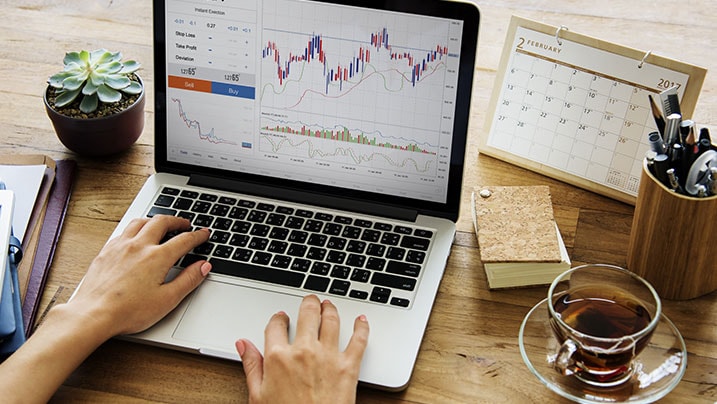CKYC Registry
-
Customer Service Contact us Service request Locate a branch
Find all the help you need
Scan the QR, get our app, and find help on your fingertips

Help CenterSupport topics, Contact us, FAQs and more
-
Login
Are you ready for an upgrade?
Login to the new experience with best features and services
-
Login
Are you ready for an upgrade?
Login to the new experience with best features and services
- Accounts
-
Deposits
IDFC FIRST Bank Deposits
View all Deposits -
Loans
IDFC FIRST Bank Loans
View all Loans - Wealth & Insure
-
Payments
IDFC FIRST Bank Payments
View all Payments -
Cards
IDFC FIRST Bank Cards
View all Cards - Blogs
- Corporate Account
-
Cash Management Services
IDFC FIRST Bank Cash Management Services
View all Cash Management Services - Supply Chain Finance
-
Corporate Lending
IDFC FIRST Bank Lending
View all -
Treasury
IDFC FIRST Bank Treasury
See more details - NBFC Financing
Support topics, Contact us, FAQs and more
- IDFC FIRST Bank Accounts
-
Savings Account
-
Corporate Salary
Account -
Senior Citizens
Savings Account -
First Power
Account -
Current Account
-
NRI Savings
Account -
TASC Institutional
Account -
Savings Account
Interest Calculator
- IDFC FIRST Bank Deposits
-
Fixed Deposit
-
Recurring Deposit
-
NRI Fixed Deposit
-
Safe Deposit Locker
-
FD Calculator
-
RD Calculator
- IDFC FIRST Bank Loans
-
Personal Loan
-
Consumer Durable
Loan -
Home Loan
-
Business Loan
-
Professional Loan
-
Education Loan
-
New Car Loan
-
Pre-owned Car Loan
-
Two Wheeler Loan
-
Pre-owned Two
Wheeler Loan -
Commercial Vehicle
Loan -
Gold Loan
-
Loan Against Property
-
Loan Against Securities
-
Easy Buy EMI card
-
Personal Loan
EMI Calculator -
Education Loan
EMI Calculator -
Home Loan
EMI Calculator
- IDFC FIRST Bank Wealth & Insure
-
FIRST Select
-
FIRST Wealth
-
FIRST Private
-
Mutual Funds
-
Sovereign Gold Bond
-
Demat Account
-
Term Insurance
-
Life Insurance
-
Health Insurance
-
General Insurance
-
Bonds
-
Loan Against
Securities -
Portfolio Management
Service
- IDFC FIRST Bank Payments
-
FASTag
-
Credit Card
Bill Payments -
UPI
-
Funds Transfer
-
Forex Services
-
Pay Loan EMI
- IDFC FIRST Bank Cards
-
Ashva :
Metal Credit Card -
Mayura :
Metal Credit Card -
FIRST Millennia
Credit Card -
FIRST Classic
Credit Card -
FIRST Select
Credit Card -
FIRST Wealth
Credit Card -
FIRST WOW!
Credit Card -
Deals
-
Debit Cards
-
Co-branded Cards
-
Credit Card
EMI Calculator -
FIRST Corporate
Credit Card -
FIRST Purchase
Credit Card -
FIRST Business
Credit Card
- Premium Metal Credit Cards
-
AshvaLifestyle1% Forex₹2,999
-
MayuraLifestyleZero Forex₹5,999
-
FIRST PrivateInvite Only
- Best for travellers
-
MayuraZero ForexMetal₹5,999
-
Ashva1% ForexMetal₹2,999
-
FIRST WOW!Zero ForexTravelLifetime Free
-
FIRST SWYPTravel OffersEMI₹499
-
FIRST Select1.99% ForexLifestyleLifetime Free
-
FIRST Wealth1.5% ForexLifestyleLifetime Free
-
Club VistaraTravelLifestyle₹4,999
-
IndiGo IDFC FIRST Dual Credit CardTravelLifestyle₹4,999
- Max benefits, Free for life
-
FIRST Classic10X RewardsShoppingNever Expiring Rewards
-
FIRST Millennia10X RewardsShoppingNever Expiring Rewards
-
FIRST Select10X RewardsLifestyle1.99% Forex
-
FIRST Wealth10X RewardsLifestyle1.5% Forex
-
FIRST WOW!RewardsTravelZero Forex
-
LIC ClassicRewardsInsuranceShopping
-
LIC SelectRewardsInsuranceShopping
- Reward Multipliers
-
AshvaLifestyleMetal₹2,999
-
MayuraLifestyleZero Forex₹5,999
-
FIRST ClassicNever Expiring RewardsShoppingLifetime Free
-
FIRST MillenniaNever Expiring RewardsShoppingLifetime Free
-
FIRST SelectNever Expiring RewardsLifestyleLifetime Free
-
FIRST WealthNever Expiring RewardsLifestyleLifetime Free
- Rewards & Credit on UPI
-
FIRST Power+FuelUPI₹499
-
FIRST PowerFuelUPI₹199
-
FIRST EA₹NVirtual1% Cashback₹499
-
FIRST DigitalVirtualUPI₹199
-
IndiGo IDFC FIRST Dual Credit CardUPITravelDual cards
- Fuel and Savings
-
FIRST PowerRewardsUPI₹199
-
FIRST Power+RewardsUPI₹499
-
LIC ClassicRewardsInsuranceShopping
-
LIC SelectRewardsInsuranceShopping
- Express and Flaunt
-
AshvaMetal1% Forex₹2,999
-
MayuraMetalZero Forex₹5,999
-
FIRST SWYPEMIOfferMAX₹499
-
FIRST MillenniaRewardsShoppingLifetime Free
- FD Backed rewarding Credit Cards for all
-
FIRST EA₹NVirtualCashback₹499
-
FIRST WOW!Zero ForexTravelLifetime Free
-
CreditPro Balance TransferTransfer & SaveReduce InterestPay Smartly
- IDFC FIRST Bank NRI Forex Solutions
-
Send money to India-Wire transfer
-
Send money to India-Digitally
-
Send money abroad
-
Max Returns FD (INR)
- IDFC FIRST Bank MSME Accounts
-
Platinum Current
Account -
Gold
Current Account -
Silver Plus
Current Account -
Merchant Multiplier
Account -
Agri Multiplier
Account -
TASC Institutional
Account -
Dynamic Current
Account -
World business
Account -
First Startup
Current Account
- IDFC FIRST Bank Business Loans
-
Business Loan
-
Professional Loan
-
Loan Against Property
-
Business Loan for Women
-
Working Capital Loan
-
Construction Equipment Loan
-
Machinery Loan
-
Healthcare Equipment Loan
- IDFC FIRST Bank Business Solutions
-
Payment Solutions
-
Tax Payments
-
Doorstep Banking
-
Point of Sale (POS)
-
Escrow Accounts
-
NACH
-
Payment Gateway
-
UPI
-
Virtual Accounts
-
As per amendment in the Income Tax Rules, PAN or Aadhaar are to be mandatorily quoted for cash deposit or withdrawal aggregating to Rupees twenty lakhs or more in a FY. Please update your PAN or Aadhaar. Kindly reach out to the Bank’s contact center on 1800 10 888 or visit the nearest IDFC FIRST Bank branch for further queries.
-
-
Most Searched
Sorry!
We couldn’t find ‘’ in our website
Here is what you can do :
- Try checking the spelling and search
- Search from below suggestions instead
- Widen your search & try a more generic keyword
Suggested
Get a Credit Card
Enjoy Zero Charges on All Commonly Used Savings Account Services
Open Account Now
Both Demat and Trading accounts are necessary when you invest in the capital markets.
Many new investors who joined the stock market in 2020 turned toward equities due to low fixed deposit (FD) interest rates and returns offered by debt instruments. It wasn’t a wrong choice, as the capital markets have the potential to help earn inflation-beating returns and build a substantial wealth corpus despite their volatility.
However, you need a Demat and Trading account to begin investing in the capital markets. This article will give you a detailed insight into each.
What is a Demat account?
In the late 90s and early 2000s, shares were held in paper format. Technology changed that, giving birth to the concept of the ‘De-mat’ account. A demat account, short for "dematerialised account," functions as a digital repository for holding and managing securities like shares, bonds, and mutual funds in electronic format, replacing traditional paper certificates.
This account facilitates seamless and secure trading on stock exchanges, streamlining the process of buying and selling investments. It offers convenience, reduces paperwork, and enhances transparency in the Indian financial markets. Opening and maintaining a demat account is a prerequisite for participating in India's modernised and digitised investment landscape, providing you with a hassle-free way to manage your securities.
READ MORE
What is a trading account?
After opening a Demat account, you must open a trading account to begin trading.
A trading account is like your financial hub for buying and selling investments, such as stocks. It's a special account with a bank or a brokerage firm that enables you to carry out these transactions electronically. A trading account comes with a unique trading number that you can use to trade stocks.
You deposit money into this account, which you then use to purchase stocks when you think their prices are low and sell them when they are high. The trading account keeps a record of all your trades and helps you keep track of your gains and losses.
So, essentially, you must have three accounts to begin trading: a bank account, a depository account, and a trading partner account. Your trading account is a conduit between your bank account and your demat account, allowing you to trade securities.
You can secure access to several stock exchanges by opening an online Trading account
Difference between a Demat and a Trading account
A Demat and a Trading account have some fundamental differences. They are:
1. Definition
A Demat account and a Trading account have different definitions. A Demat account is an account that stores your shares in dematerialised form. Meanwhile, a Trading account is a bridge between your Demat account and your bank account.
2. Use
A Demat account serves as a depository for holding shares, whereas a Trading account provides the details of your trades. Your Trading account is also linked to your bank account, allowing you to transfer funds from one account to another.
3. Annual charges
A Demat account attracts annual charges. Brokers charge a fee for annual maintenance and brokerage services, and it is deducted from your Demat account. Although some firms may charge a nominal amount, a Trading account is generally free.
4. Compliance
There are different rules for opening a Demat account and a Trading account. For a Demat account, you must approach a broker registered with the Securities and Exchange Board of India (SEBI) and NSDL or CDSL. The same permissions are not required while opening a Trading account.
IDFC FIRST Bank has now made provisions for customers to have a Demat and Trading account. The bank has partnered with Zerodha to make this available to their customers. You need to log into the banking app and link your savings account to the Zerodha account. Once done, you can start investing in the share market.
Can I have a demat account without a trading account?
You can have a demat account without a trading account. A demat account primarily serves as a digital repository for holding and managing securities like shares and bonds. While a trading account is necessary for actively buying and selling these securities on stock exchanges, a demat account can be standalone, allowing you to hold investments without engaging in trading activities. This can be useful if you want to invest in securities for the long term without the intention of frequent trading.
Can I have a trading account with a demat account?
It is possible to have a trading account without a demat account. A trading account is designed specifically for buying and selling securities like stocks and derivatives like futures and options on stock exchanges which do not require a demat account. While a demat account is typically linked to it for holding these securities in electronic form, some brokers do offer the option to open a trading account without a demat account, allowing you to trade in the short term without the need for long-term storage or management of physical share certificates.
Charges for demat and trading account
Demat and trading accounts offer convenient investing in stock market through digital modes but, they come with a few types of charges and it's crucial for investors to understand them thoroughly. Here's a comprehensive overview of these charges:
Demat account charges:
- Account opening fee: This is the initial cost you incur to establish a demat account with a depository participant (DP).
- Annual maintenance charges (AMC): An annual fee is charged for the maintenance and upkeep of your demat account. AMC varies among DPs.
- Transaction charges: These are fees associated with transferring securities in and out of your demat account. Charges may differ based on the type of transfer (debit or credit) and the quantity of securities.
- Pledge fees: If you pledge your securities as collateral for loans or margin trading, you may incur charges for this service.
- Debit transaction charges: Whenever securities are debited from your demat account (e.g., when you sell shares), a fee is applied.
- Delivery instruction slip(DIS) book charges: If you opt for physical DIS slips instead of electronic ones, you may be charged for the book.
- Account closure charges: In case you decide to close your demat account, there could be charges associated with the closure process.
Trading account charges:
- Account opening fee: Similar to the demat account, there's an initial cost for setting up a trading account with a stockbroker.
- Brokerage charges: This is the fee paid to your broker for executing buy-and-sell orders. Brokerages may have different pricing structures, such as flat fees or a percentage of the trade value.
- STT (Securities Transaction Tax): A tax is levied on the value of securities traded, which is collected by the government.
- Exchange transaction charges: Stock exchanges impose fees for facilitating the trade, which can vary based on the transaction value.
- Clearing charges: These fees cover the cost of clearing and settling trades and are incurred as part of the trading process.
- SEBI turnover charges: The Securities and Exchange Board of India (SEBI) imposes these charges based on the turnover of your trades.
- Stamp duty: This is a state-specific tax on the transfer of securities, and the rate may vary across different regions.
- Margin funding charges: If you borrow funds for trading on margin, interest charges will apply based on the borrowed amount and interest rate.
- Call and trade charges: Some brokers may charge an additional fee if you place orders through their call centre.
Open a demat and trading account
Opening a demat and trading account with IDFC FIRST Bank online is a straightforward process that allows you to start on your investment journey effortlessly. Here's a comprehensive step-by-step guide:
Step 1: Navigate to demat and trading account section: Scroll to the demat and trading account section and click on the “Open Now” button
Step 2: Fill in your details: On the designated page, provide your personal information accurately. This typically includes your full name, date of birth, PAN (Permanent Account Number), Aadhaar number, and contact details.
Step 3: Upload required documents: Scan and upload the necessary documents, which typically comprise your PAN card, Aadhaar card, passport-sized photographs, and a cancelled cheque or bank statement to serve as proof of address. Ensure that these documents are clear and legible.
Step 4: Complete the KYC process: You may need to undergo the KYC (Know Your Customer) process, which can often be completed online by verifying your Aadhaar through OTP (One-Time Password) authentication.
Step 5: Review and confirm: Thoroughly review the information you've provided and make any necessary corrections before proceeding.
Step 6: Electronic signature: Complete the application process by electronically signing the necessary documents, as mandated by regulatory guidelines.
Step 7: Account activation: Once your application is successfully verified, IDFC FIRST Bank will activate your demat and trading accounts. You will receive confirmation along with your login credentials via email and/or SMS.
Step 8: Start trading: With your newly opened demat and trading accounts, you are now prepared to dive into the world of stock market trading and investment through an IDFC FIRST Bank demat and trading account.
Frequently Asked Questions
What is a demat account, and what is its purpose?
A demat account, or dematerialised account, is a digital repository for holding securities like stocks and bonds in electronic form. Its primary purpose is to store and manage your investments securely, replacing the need for physical share certificates.
What is a trading account, and how does it differ from a demat account?
A trading account is essential for buying and selling securities on stock exchanges. While a demat account holds your investments, a trading account facilitates the actual trading process. You place orders through your trading account, and the demat account holds the securities once the trade is executed.
What are the charges associated with demat and trading accounts?
Demat account charges may include account opening fees, annual maintenance charges (AMC), transaction fees, pledge fees, debit transaction charges, and more. Trading account charges encompass brokerage fees, taxes like STT and stamp duty, exchange transaction charges, and other expenses.
How do I transfer securities between my demat and trading accounts?
Transferring securities from your demat to trading account (debit) or vice versa (credit) is a simple process. You need to provide instructions to your depository participant (DP) or broker for such transfers, specifying the quantity and type of securities. There may be transaction charges associated with these transfers.
Can I use the same demat account for multiple trading accounts or vice versa?
Yes, you can link a single demat account to multiple trading accounts with different brokers. Conversely, you can have multiple demat accounts linked to a single trading account. This flexibility allows investors to choose brokers based on their trading preferences while centralising their investments in one or more demat accounts.
Disclaimer
The contents of this article/infographic/picture/video are meant solely for information purposes. The contents are generic in nature and for informational purposes only. It is not a substitute for specific advice in your own circumstances. The information is subject to updation, completion, revision, verification and amendment and the same may change materially. The information is not intended for distribution or use by any person in any jurisdiction where such distribution or use would be contrary to law or regulation or would subject IDFC FIRST Bank or its affiliates to any licensing or registration requirements. IDFC FIRST Bank shall not be responsible for any direct/indirect loss or liability incurred by the reader for taking any financial decisions based on the contents and information mentioned. Please consult your financial advisor before making any financial decision.
The features, benefits and offers mentioned in the article are applicable as on the day of publication of this blog and is subject to change without notice. The contents herein are also subject to other product specific terms and conditions and any third party terms and conditions, as applicable. Please refer our website www.idfcfirstbank.com for latest updates.























